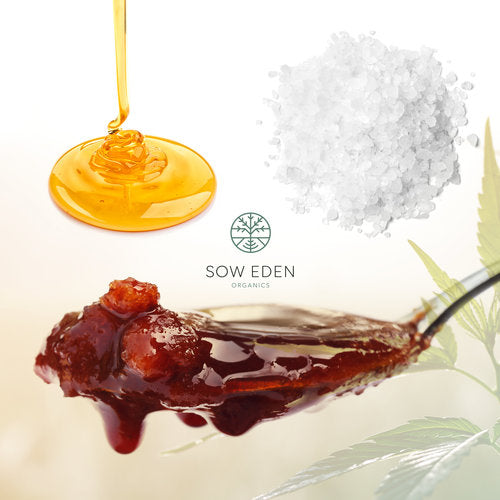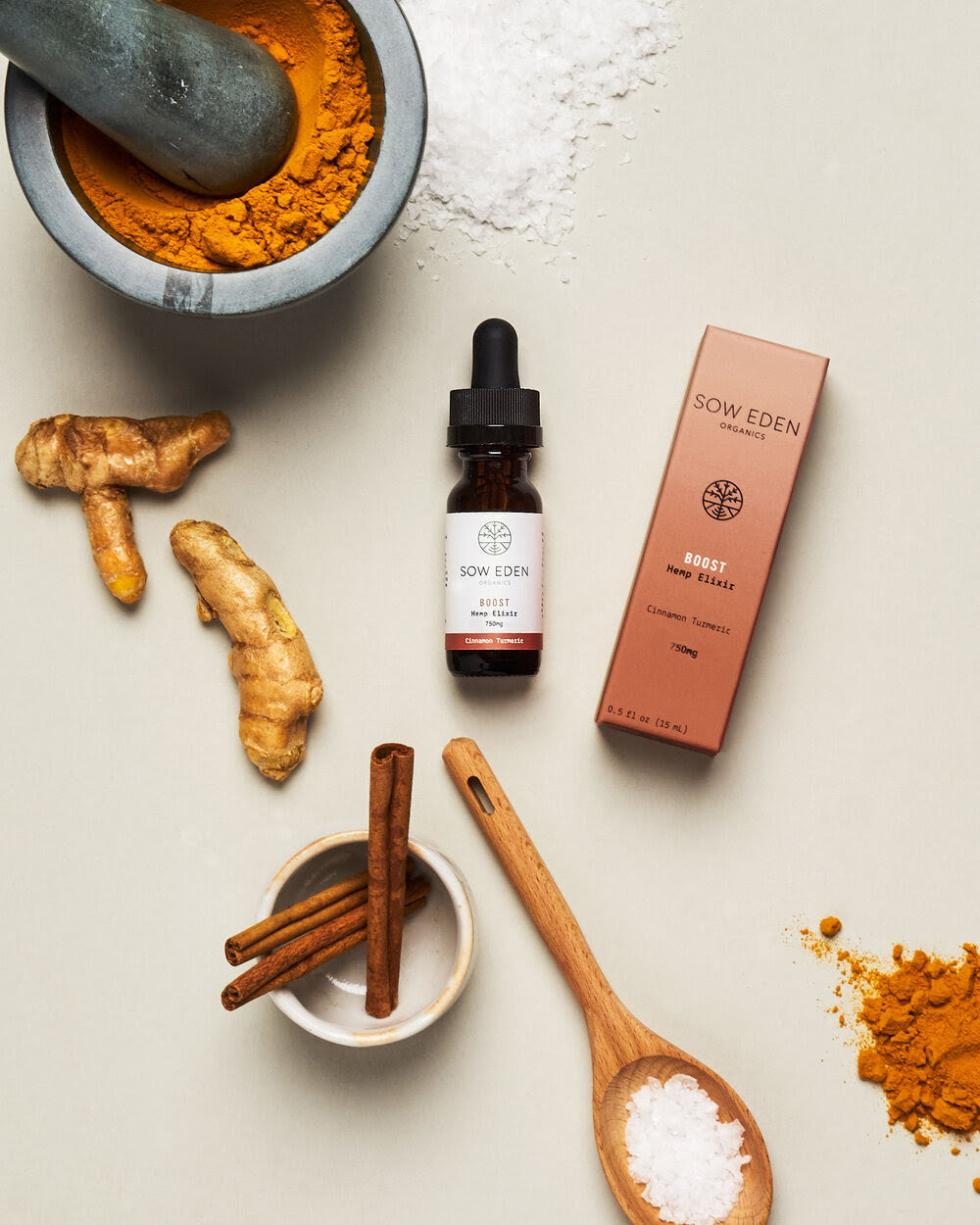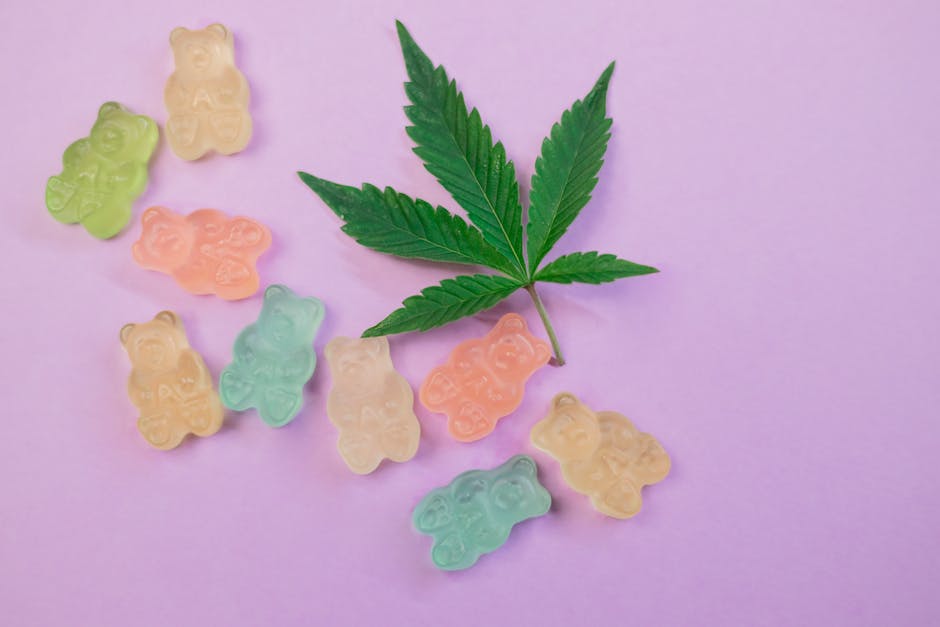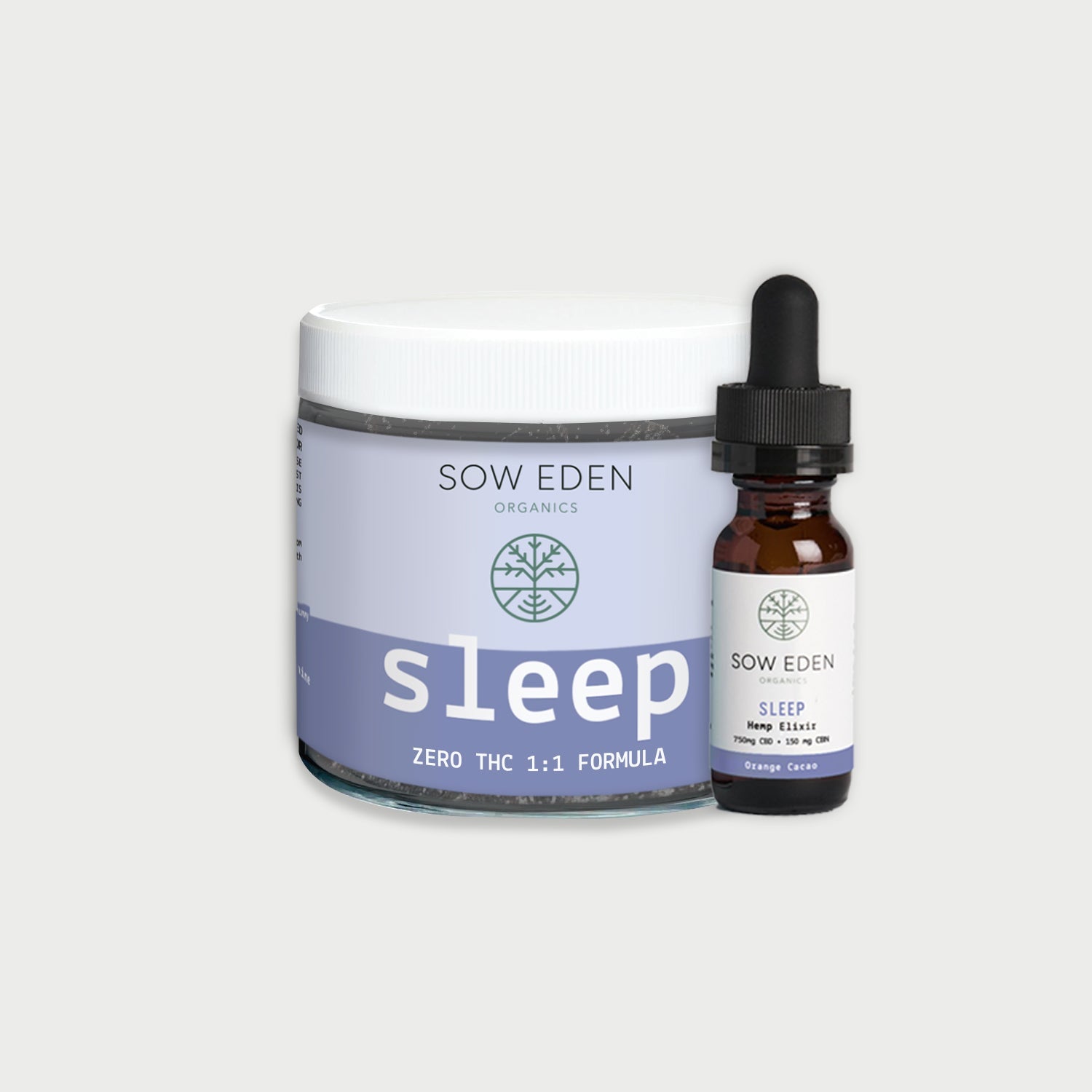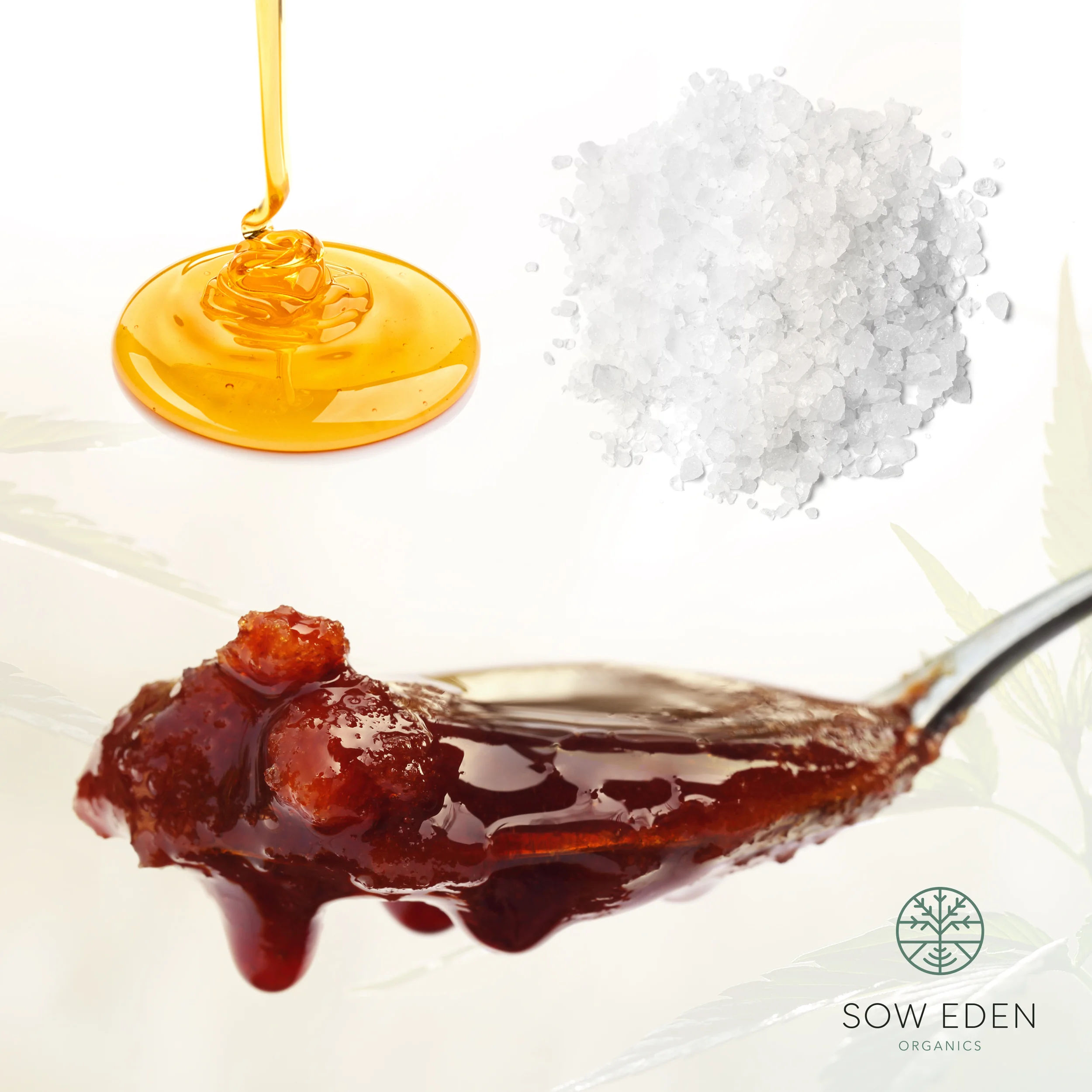
CBD comes in many forms: Distillate (top left), Isolate (top right), Whole-Plant (bottom).
CBD is CBD, right? Well, not exactly. With so many CBD products on the market these days, it’s difficult for the consumer to know all the differences. At Sow Eden, we stress that not all CBD products are created equal. This blog will hopefully clear up a lot of the confusion around CBD and educate you on the key differences so you know exactly what to look for in a quality CBD product. Did you know that currently there is no government agency regulating the often confusing and misleading terminology used by CBD companies? CBD companies can market their products freely without any consequences or regulatory oversight.
CBD Isolate Products - ‘Single Molecule CBD’
CBD Isolate products are made with single-molecule crystalline CBD that looks a lot like sugar crystals. CBD isolate is basically pharmaceutical, lab-grade CBD because it’s typically 99+ percent pure. Before being converted to its crystalline and pure form, CBD isolate
begins as a whole-plant hemp CBD extract known as ‘crude’ oil. Crude, un-refined cannabis oil often contains various impurities such as heavy metals, pesticides and fungicides, residual solvents such as ethanol or butane, and a variety of plant compounds including chlorophyl, the green pigment found in plants, and of course, cannabinoids. The goal of CBD isolation is to separate the CBD molecule from the rest of the cannabinoids, especially THC, as well as these other ‘impurities’ and crystallize the CBD so that nothing but the CBD remains.
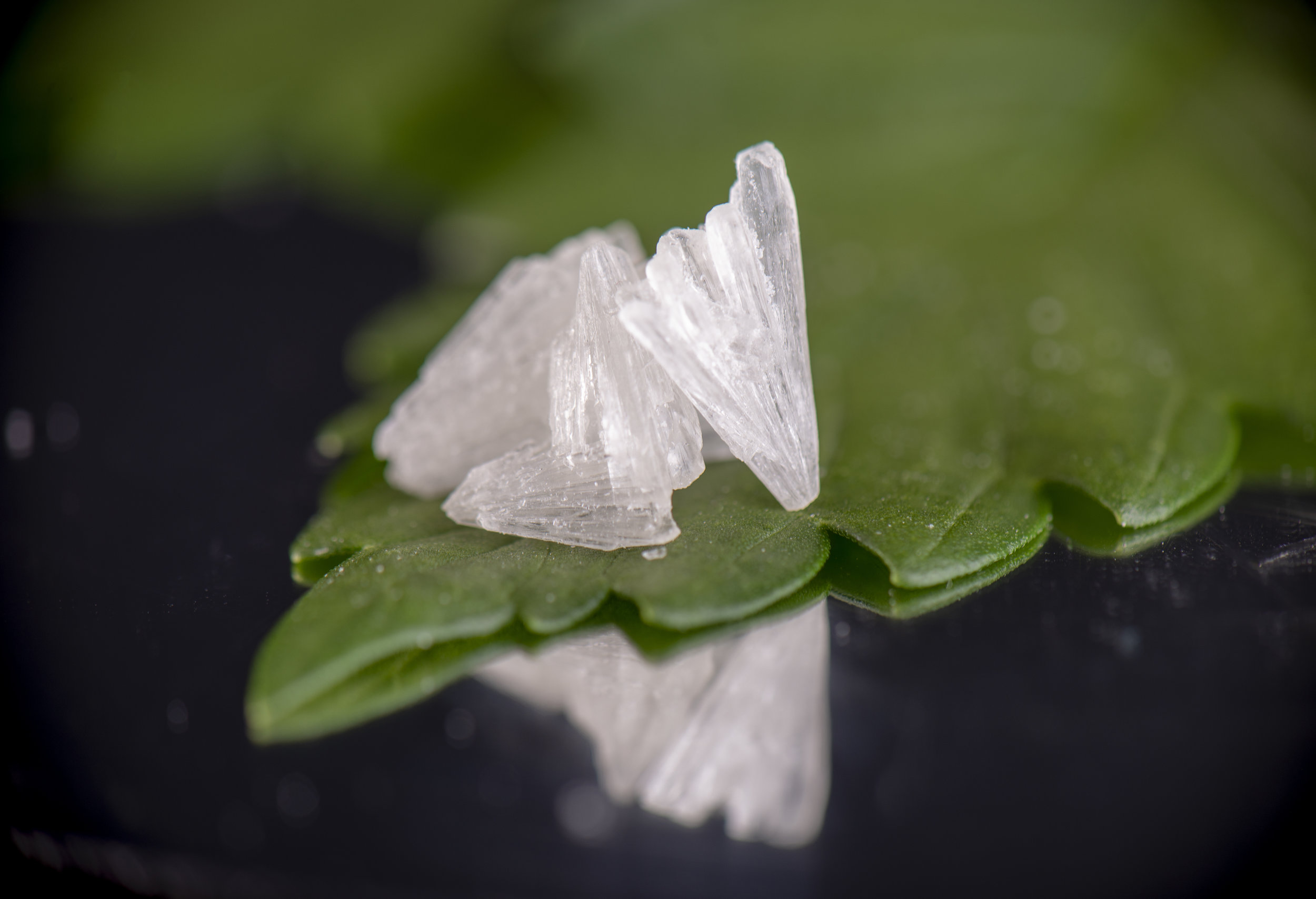
CBD isolate crystals are comprised of 99+% pure Cannabidiol (CBD).
CBD isolate-based products have become increasingly popular and widespread for several reasons. The main reason is that CBD isolate is much cheaper to produce than true broad spectrum/full spectrum CBD oil. Since CBD isolate is cheaper to make, it generally costs less to purchase and therefore the market is more saturated with CBD isolate. Another reason is that CBD isolate is virtually tasteless and odorless, so it blends well into products. For many consumers of CBD, the taste of the final product is important. True CBD oil often has a strong, earthy, spicy, and sometimes bitter flavor, therefore making it less palatable to someone new to cannabis. CBD isolate is a great product for making CBD bath bombs or bath salts, due to the higher solubility in water. True CBD oil is hydrophobic, so it will float on top of the water instead of dissolving.
CBD isolate products are often stronger in milligram dosage than whole-plant products, making them more appealing to the consumer, and they always contain zero THC. CBD
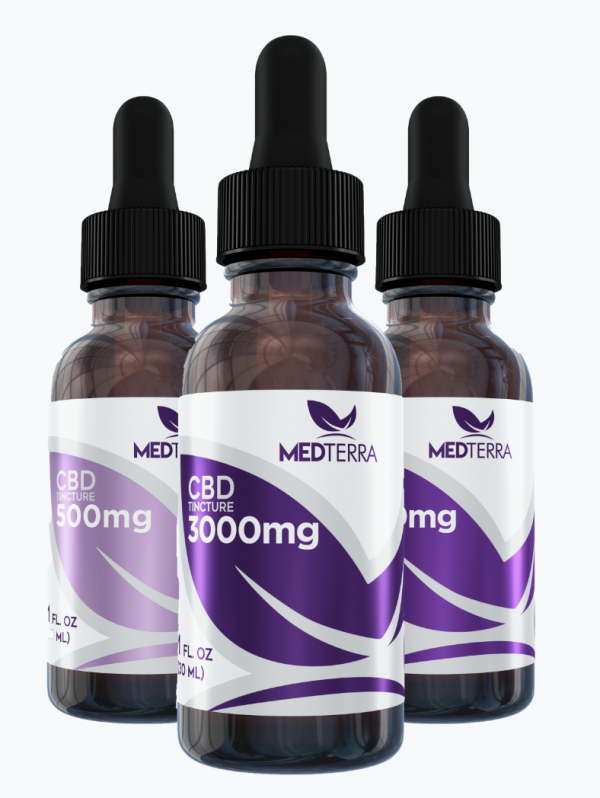
MEDTERRA is a popular CBD brand made with 99% pure CBD isolate.
isolate products are a safe solution for those looking to try CBD without the worry of testing positive for THC on a drug test. However, products containing more CBD (1000 mg +) or ‘purer’ forms of CBD such as CBD isolate don’t always translate to more effective products. In fact, a somewhat recent study on CBD conducted in Israel found that pure, single-molecule forms of CBD such as CBD isolate are less effective from a therapeutic standpoint than more whole-plant forms of CBD such as broad spectrum or full spectrum CBD oils. Furthermore, CBD isolate products are technically not true CBD oil products, so to call them that is misleading to say the least. CBD isolate blended into a carrier oil is much different than true CBD oil blended into a carrier. If we could use an analogy, it’s like putting powdered milk into your coffee and pretending it’s cream. There is just no comparison.
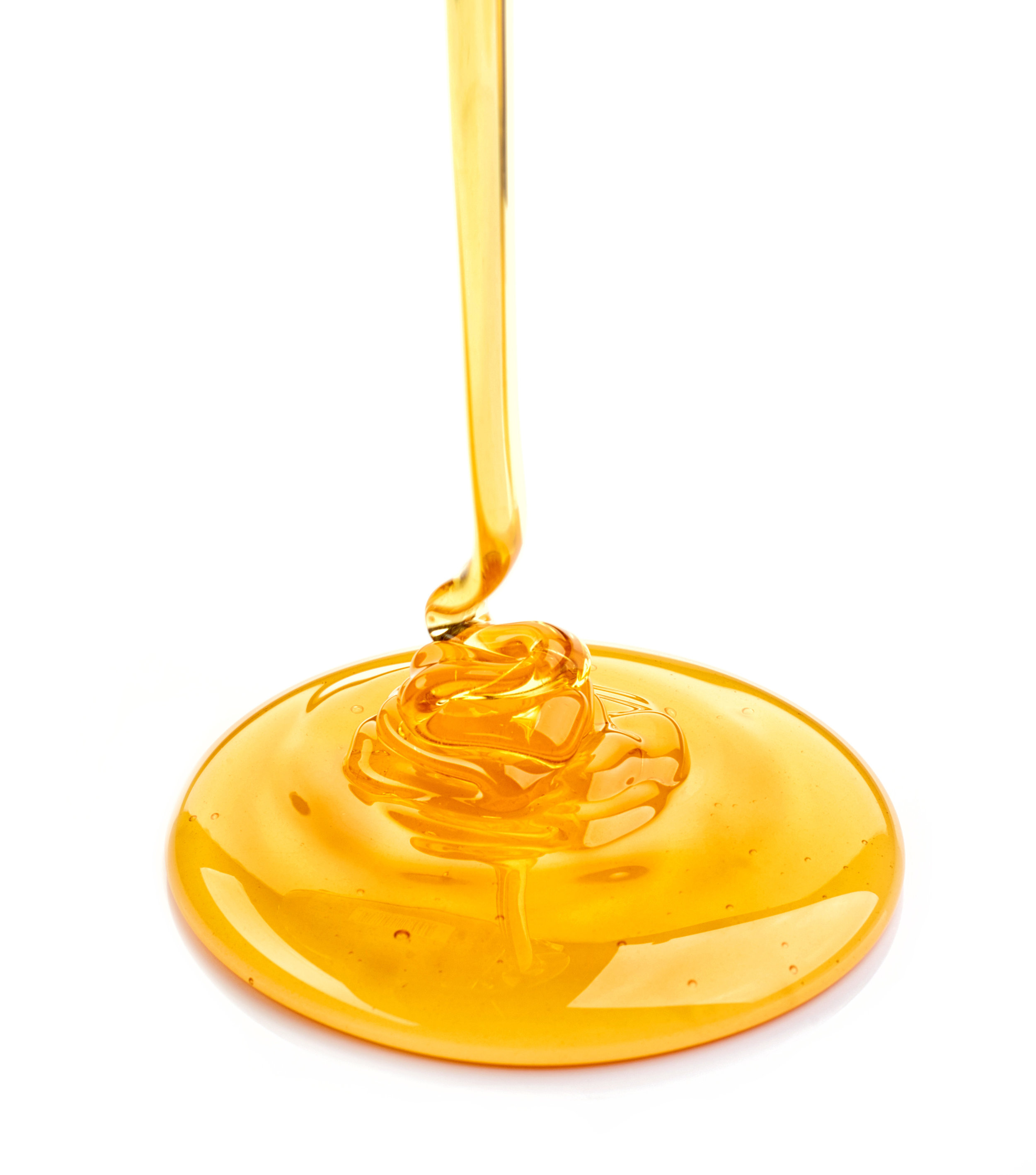
CBD Distillate is essentially CBD isolate in oil form and generally lacks the minor cannabinoids and other phyto-chemicals present in whole-plant CBD extracts. It is usually a beautiful golden color and has a bland smell and flavor.
CBD 'distillate’ products are very similar to CBD isolate products, except that the CBD is in oil form and not a true crystalline form. CBD distillate can contain other plant compounds such as lipids, flavonoids, and very small amounts of terpenes, the aromatic compounds that give cannabis its characteristic scent. CBD distillate is usually a light golden color, so it is highly refined and stripped of plant pigments (chlorophyl + carotenoids), THC, as well as other minor cannabinoids like CBG and CBC. Although CBD distillate is great for making CBD products with a very mild aftertaste, distillate-based products are also not as therapeutically effective compared to whole-plant CBD oils.

Full spectrum CBD Oil is usually darker in color because it hasn’t undergone fractional distillation and beautification processes.
Whole Plant CBD Products Are Superior
Whole-plant CBD products are generally considered to be superior to CBD isolate or CBD distillate products because they contain a more full or broad spectrum of cannabinoids, including CBG, CBC, CBDV, THC, etc., as well as other phytonutrients, flavonoids, terpenes, and plant pigments.
Whole plant CBD extracts can be divided into various categories:
True Full spectrum CBD oil - a CBD extract that has not undergone any secondary distillation or fractioning of plant compounds. This CBD oil will often have a CBD rich / low THC profile that is considered illegal to sell on the online market or across state lines because the THC content of the oil is greater than 0.3%. This oil will have a detectable ratio of CBD:THC ranging from 20:1 to 40:1. These types of products are usually found exclusively in a legal cannabis dispensary setting.
Full Spectrum Mitigated CBD oil - a CBD extract that has undergone secondary distillation or
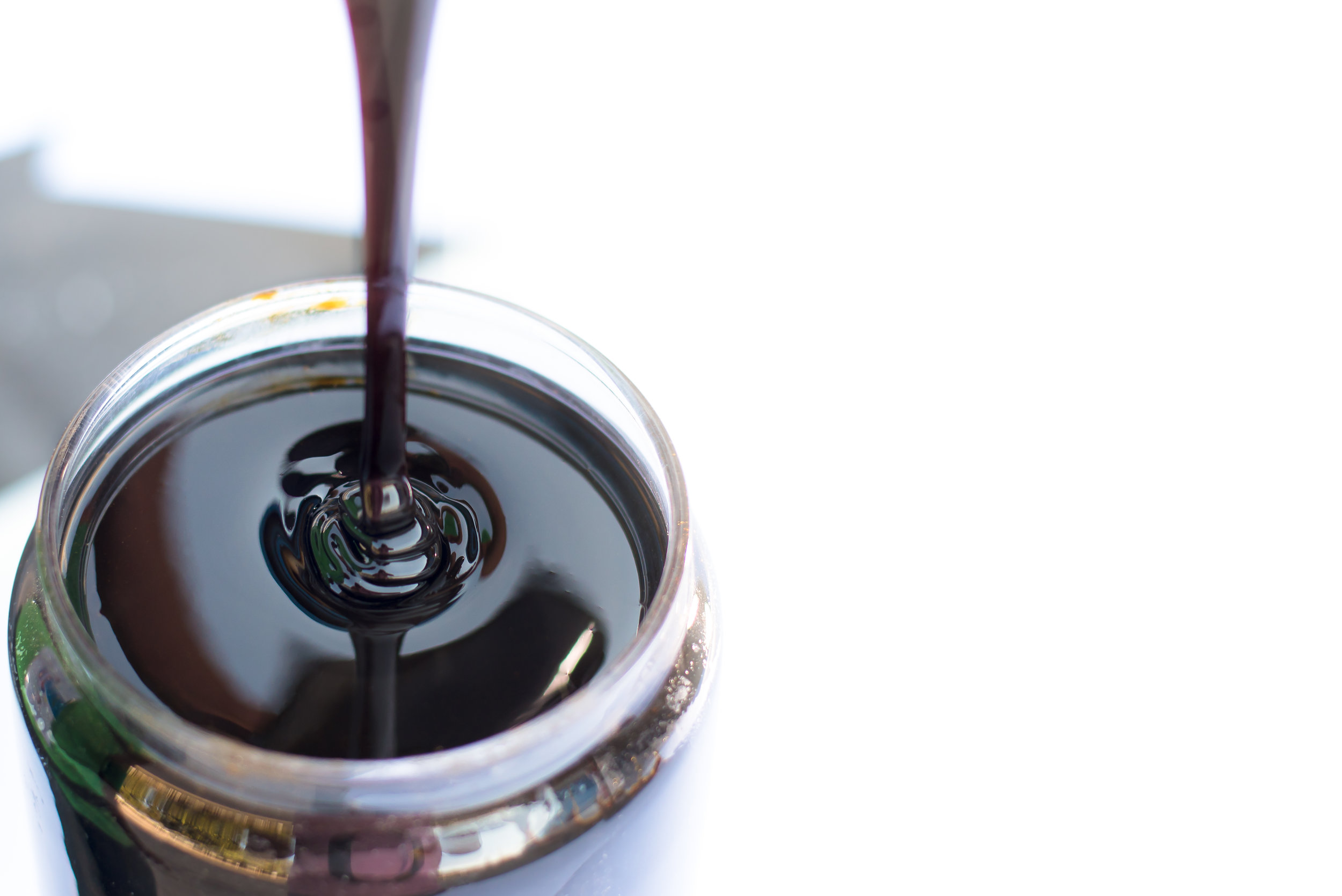
fractioning of the original cannabinoids present in the oil. This CBD oil will often have a predominantly CBD rich profile with less than 0.3% THC. The once true full spectrum of the original extract has been altered with to make the oil fit within the legal definition of ‘industrial hemp,’ so therefore it cannot contain greater than 0.3% THC. There may also be some detectable levels of minor cannabinoids present in the oil, as well as terpenes and pigments.
Broad Spectrum CBD oil - a CBD extract that has undergone secondary distillation or fractioning of the original cannabinoids present in the oil. This CBD oil will have zero THC because it has been removed. There will also be several of the minor cannabinoids present in the oil. Many full spectrum products on the market should actually be labeled as broad spectrum.
To make the issue even more complicated, the extraction method can also dictate the final quality and efficacy of the oil. Some suggest that a whole plant extract should be more in line with a Rick Simpson-style oil, in which the oil looks more a like a crude, un-refined oil. This whole-plant extract will be thick and very dark, almost black, and it will be extracted with alcohol rather than a hydrocarbon solvent such as butane or propane. Others prefer extracts made with Carbon Dioxide (CO2), or even cold-pressed. At the end of the day, whole-plant CBD products are more effective than CBD isolate products due to a phenomenon known as the "‘entourage effect.’ The synergy between the plant compounds can be many times more therapeutically effective than single molecule CBD products. Try them out for yourself!

Sow Eden’s products are THC free so they fall into the whole-plant broad spectrum category. We use a highly unrefined CBD oil that still contains many of the plant pigments and phyto-chemicals. This is part of the reason why Sow Eden’s products are superior to other products, especially those made with single molecule CBD isolate.


